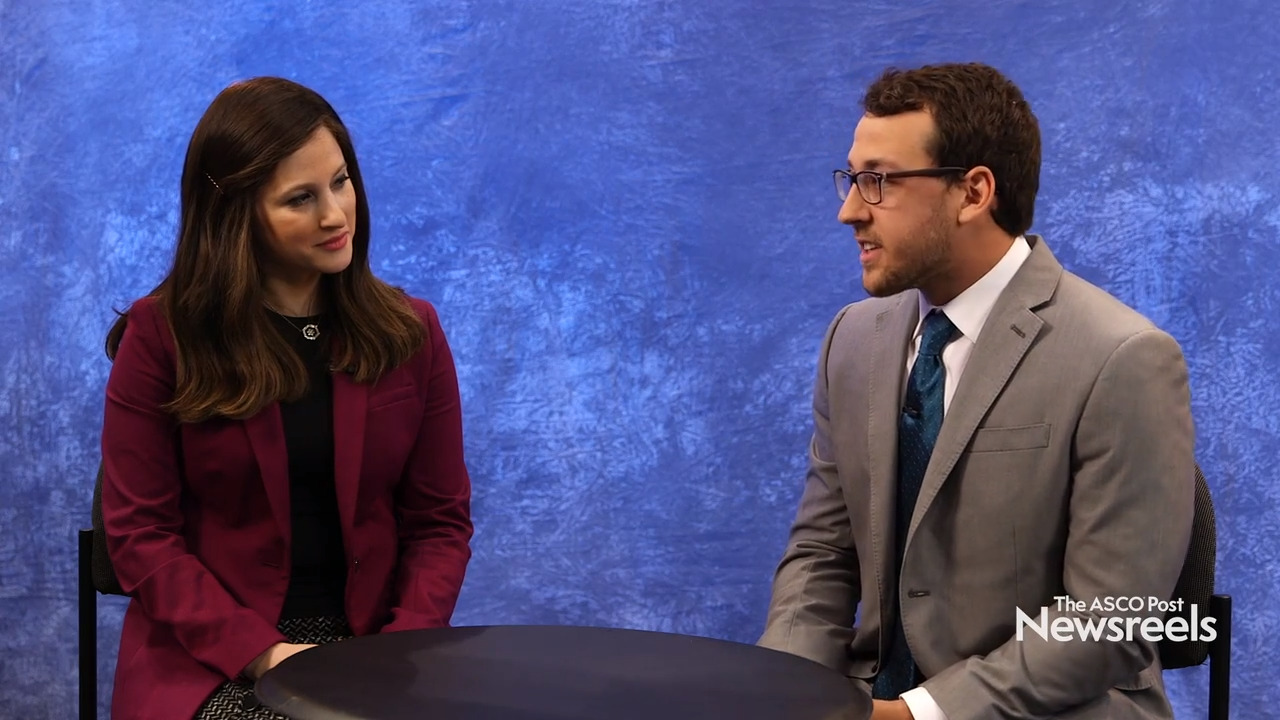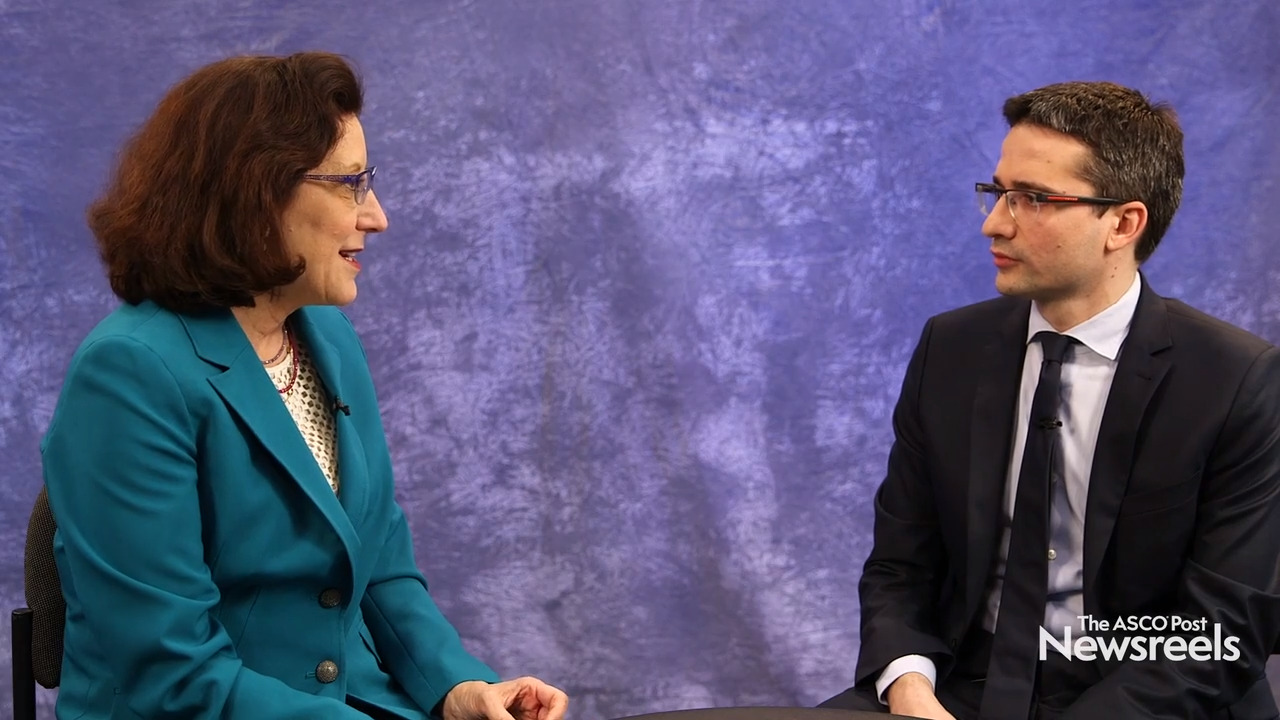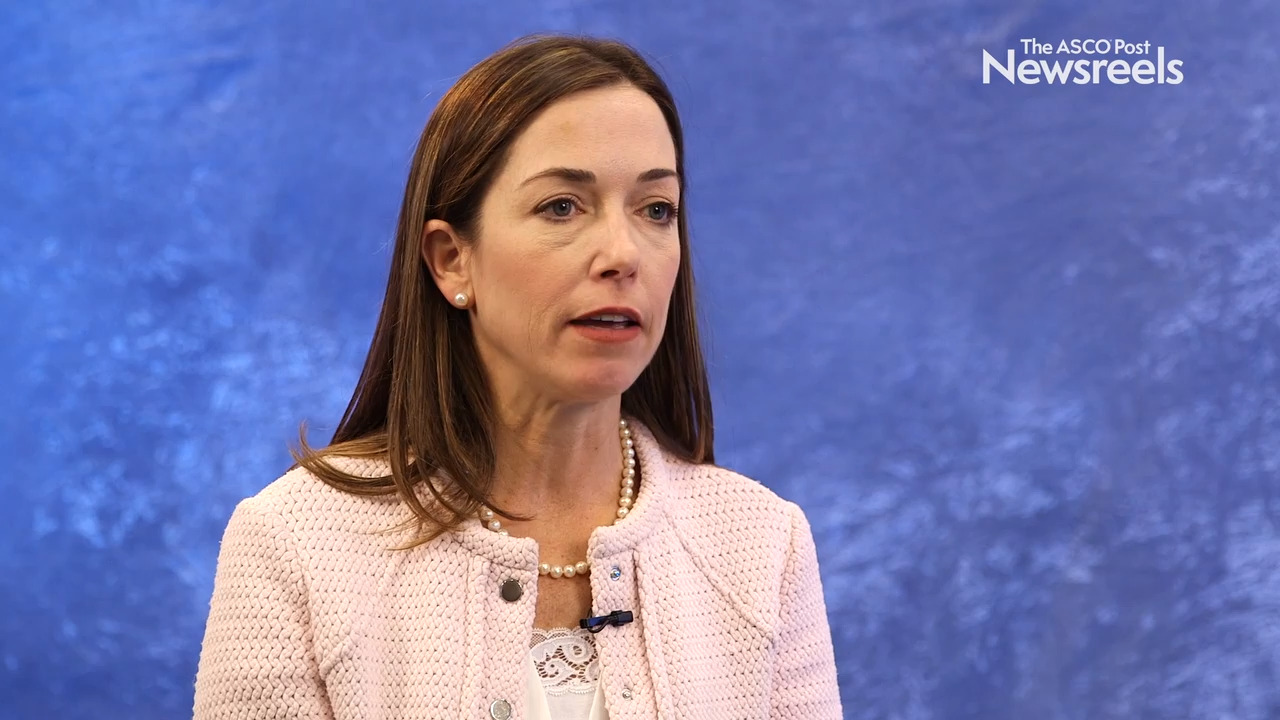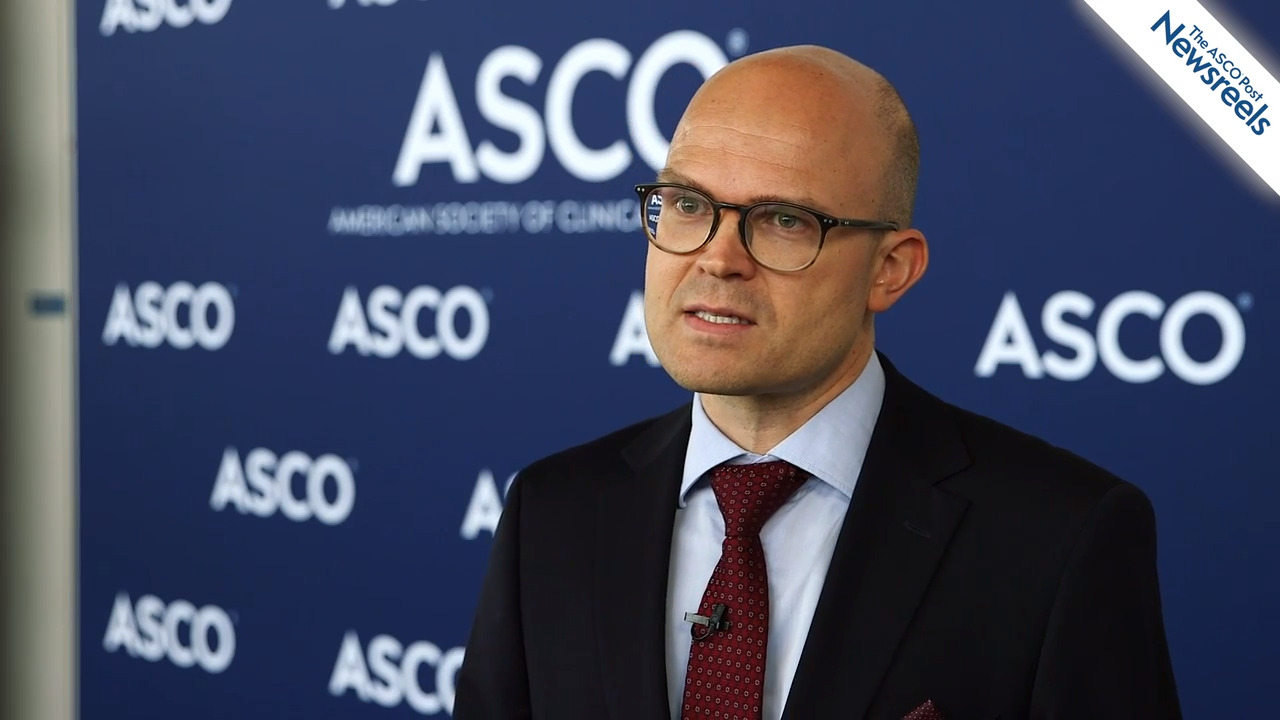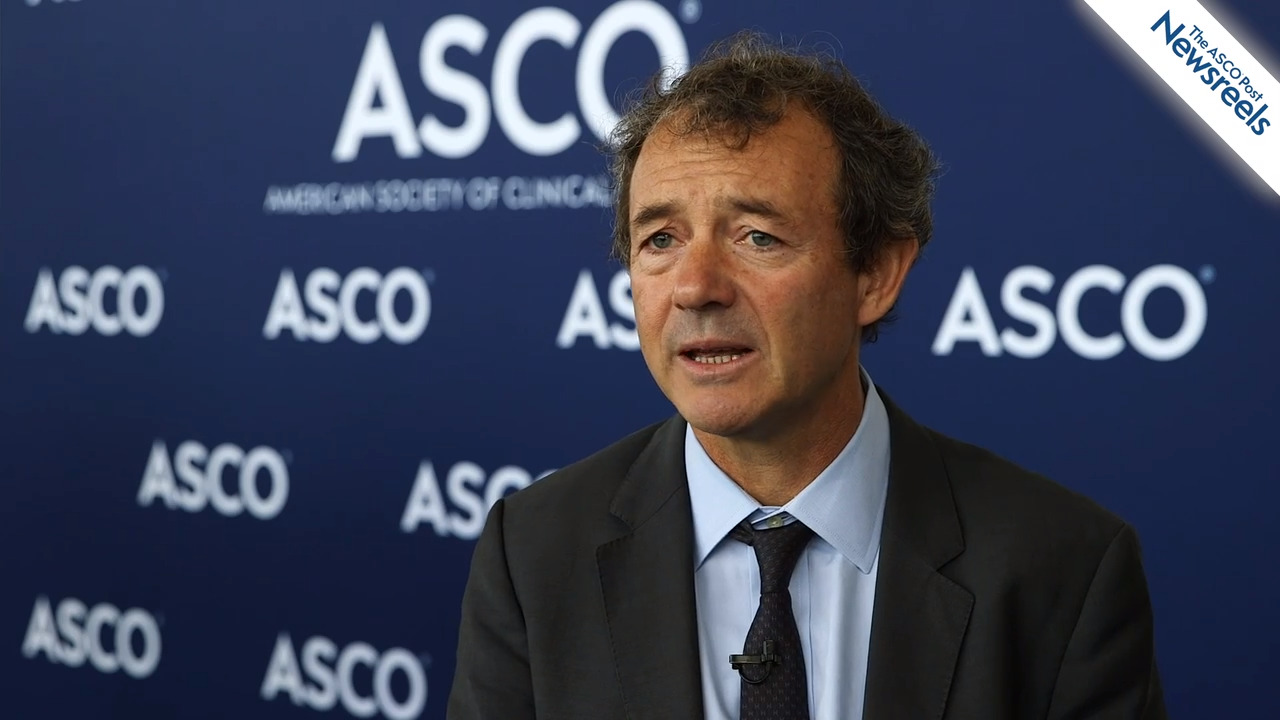Kamal Chamoun, MD, on Multiple Myeloma: Insurance Status and Survival
2019 ASCO Annual Meeting
Kamal Chamoun, MD, of University Hospitals Seidman Cancer Center, discusses how better insurance coverage determines not only the ability of patients with multiple myeloma to afford high-priced oral medications, but their survival of the disease (Abstract LBA107).
Miriam Knoll, MD, of Hackensack University Medical Center, and Richard J. White, DO, of Allegheny Health Network, discuss improved overall survival among younger female patients with non–small cell lung cancer who have a lower comorbidity score, lower grade, private insurance, and treatment with intensity-modulated radiation therapy (Abstract 9024).
Matteo Lambertini, MD, PhD, of the University of Genova and Policlinico San Martino Hospital, and Hope S. Rugo, MD, of the University of California, San Francisco, discuss findings from the SOPHIA trial on margetuximab plus chemotherapy vs trastuzumab plus chemotherapy in patients with HER2-positive metastatic breast cancer after prior anti-HER2 therapies (Abstract 1000).
Sara A. Hurvitz, MD, of the David Geffen School of Medicine, University of California Los Angeles, discusses 3-year outcomes from the first phase III study to test a non-conventional regimen for the neoadjuvant and adjuvant treatment of HER2-positive breast cancer (Abstract 500).
Åsmund A. Fretland, MD, of Oslo University Hospital, discusses clinical trial findings on survival outcomes after laparoscopic vs open resection for colorectal liver metastases. The study he conducted with his team showed that the laparoscopic procedure did not jeopardize long-term survival (Abstract LBA3516).
François-Xavier Mahon, MD, PhD, of the Université Bordeaux and Institut Bergonie, discusses results of the ENESTop study, which demonstrated the long-term durability and safety of treatment-free remission in chronic-phase CML after second-line nilotinib (Abstract 7005).
